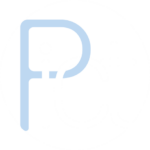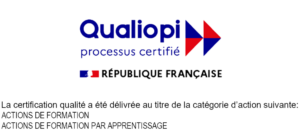
One qualification, two routes…
For those wishing to join our CAP course in the context of an apprenticeship contract (work and study), the Paris Institute of Childcare Training offers two possible routes to attaining the CAP AEPE qualification, depending on your professional interests and preferred rhythm.
Individual Context
At-home childcare
With the option Auxiliaire Parental, students will benefit from a childcare experience with children aged 0 to 6, as well as an apprenticeship or professionalization contract with no registration fees. They are remunerated through an employment contract throughout the training period by a specialized childcare agency (the employer).
Duration: 600 hours over 10 months, from September to June, each year
Training hours: Monday, Tuesday, Thursday and Friday, 9 a.m. to 12 p.m. and 1 p.m. to 3 p.m.
Work-study program : Alternation with family work via a partner childcare company, with after-school and Wednesday childcare for children aged 0 to 6
Collective Context
Daycare / Preschool
With the option Auxiliaire Crèche/Ecole Maternelle, Students will benefit from a childcare experience with children aged 0 to 6, as well as an apprenticeship or professionalization contract with no registration fees. They are remunerated through an employment contract throughout the training period by a pre-school or a daycare (the employer).
Duration: 450 hours over 12 months, from August to August each year
Training hours: Wednesdays from 9am to 5 pm (+ weekly additional e-learning)
Work-study program : Alternation working with children in a collective setting – either in a pre-school (école maternelle) years or a daycare (crèche)
Objectives
At the end of the training, the trainee should be able to:
- Acquire and put into practice the essential knowledge and skills to support children from 0 to 6 years old in collective structures as well as in a home setting.
- Obtain the early years diploma known as the CAP Accompagnant Éducatif Petite Enfance (CAP AEPE), a level 3 diploma issued by the Ministry of National Education.
The skills targeted are defined by the CAP AEPE national curriculum.
Training modules
The training modules follow the skills assessed by the CAP AEPE exam, which are defined in the national curriculum and organized by blocks. Each block corresponds to an exam paper.
Professional Modules
Block 1: Accompanying the development of young children
-
- Accompanying children in their discoveries and learning
- Caring for children and accompanying them in their daily activities
- Creating and presenting a “chef d’œuvre” (for learners on an apprenticeship contract)
Block 2: Working in collective settings
-
- Working as part of a child-parent-professional network
- Working in early years collective settings such as preschools and crèches
Block 3: Working in individual settings
-
- Professional context of home settings (at home child-minders)
General Education
- French, History-Geography-Civic Moral Education
- Mathematics and Physics – Chemistry
- Physical education and sport (only for apprentis)
- Environment – Health – Prevention
Teaching methods
- Blended learning (mix of face-to-face classes, online and e-learning)
- Bilingual training (English and French), adapted to the learner’s level of French
- Period of training in a professional environment (in a crèche or a school, at-home setting)
- Training resources: classrooms, digital platform with online teaching aids, technical platforms (childcare, maintenance, cooking), CAP AEPE manual
- Varied teaching approaches: theoretical contributions in class, interactive sessions, practical workshops, written and oral exercises, individual and group work, professional scenarios, case studies, research and independent work, assistance in preparing for tests, follow-up in the preparation of files and documents.
Evaluation methods and career opportunities
- Regular assessments of learning during training (written and oral)
- Training booklet for each trainee, completed by the training organization and the employing company.
- Exam sessions organized by the National Ministry of Education (April to June), including 3 professional exams, 3 general exams (written and oral). More details can be found in the national curriculum.
- Training certificate issued at the end of the training
- Adaptation of the course according to acquired knowledge, exemptions and regulatory equivalences: possibility of validating certain modules based on past professional experiences or diplomas.
- The many professional opportunities are detailed by France Competences.
Last update 23/10/2025


 Click to see certificate
Click to see certificate